Fawn Lilies Bloom In Historic Churchyard On Vancouver Island
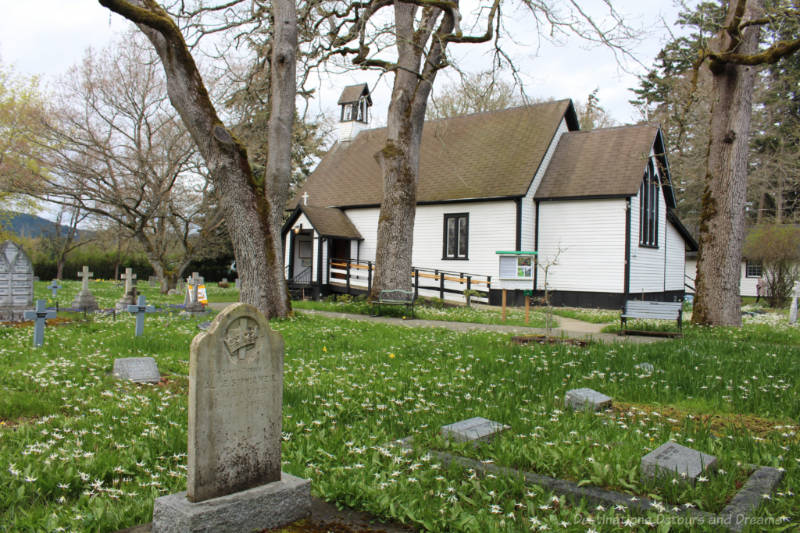
The historic church and cemetery of St. Mary the Virgin in Metchosin, British Columbia is well known for its spring blooming fawn lilies
Metchosin is a rural community located on Vancouver Island, British Columbia in the Greater Victoria area. It is about 20 kilometres (12 miles) west of downtown Victoria. Here, in addition to the village centre, you’ll find winding rural roads, small farms, bits of forest, rocky headlands, seaside homes, and a historic church and cemetery where springtime blooms make you feel as if you’ve walked into the middle of a tranquil, beautiful painting.
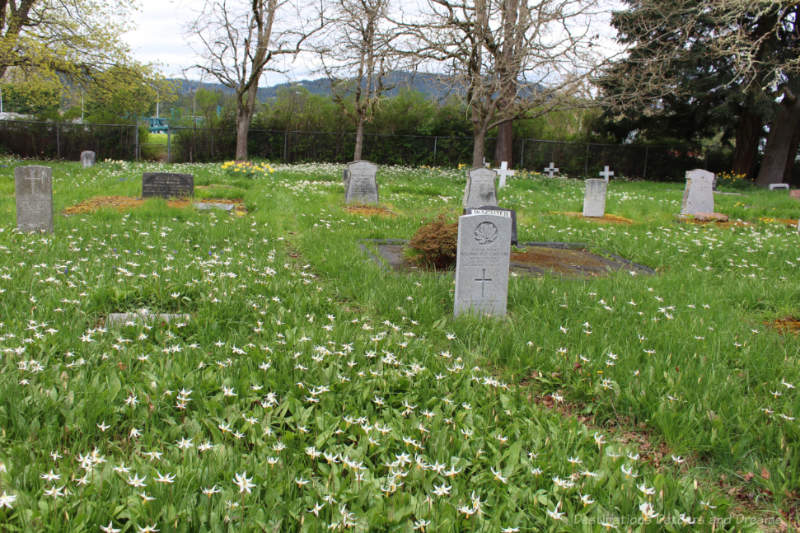
When I visited the Church of St. Mary the Virgin in early April, blooming white fawn lilies blanketed the cemetery grounds. The church grounds are well known as a great spot to see fawn lilies in spring.
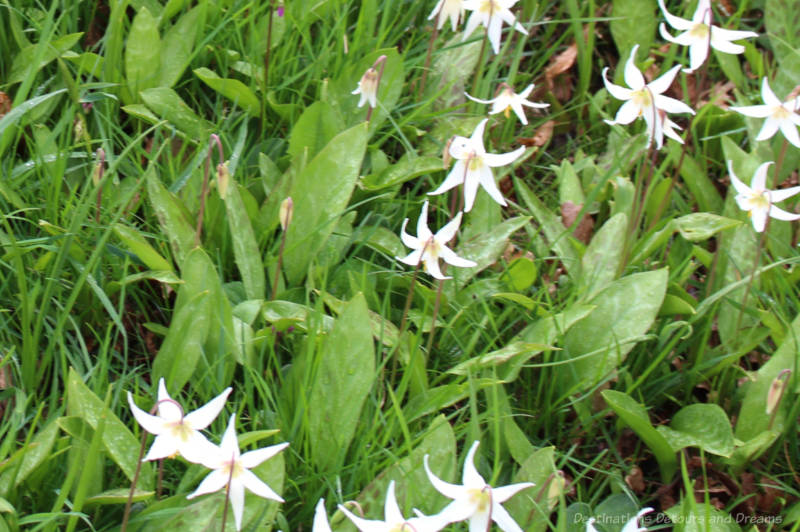
The fawn lily (Erythronium) is a wildflower native to the area. Its petals curve backwards, forming bell-shaped flowers. The white fawn lily is found in dry, well-drained spots from forest meadows to open grassy areas to fairly dense rocky woodlands. Typical blooming time is from mid to late March into early April. (There is also a pink fawn lily that is a lover of damp forests and flourishes in coastal rainforests.)
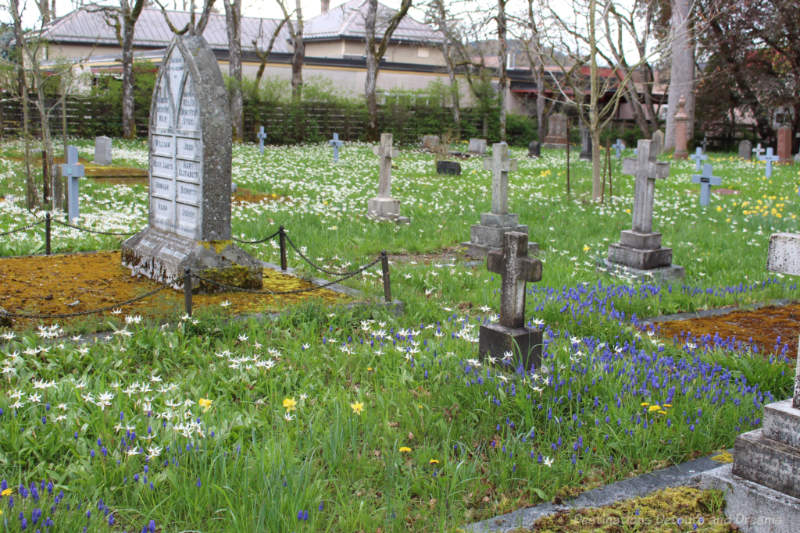
When I visited, daffodils and grape hyacinths also bloomed among the fawn lilies. Information at the church noted that camas was among the wildflowers the cemetery was famous for. So, if you visit in May, you may see the grounds filled with the blue blooms of that native plant.
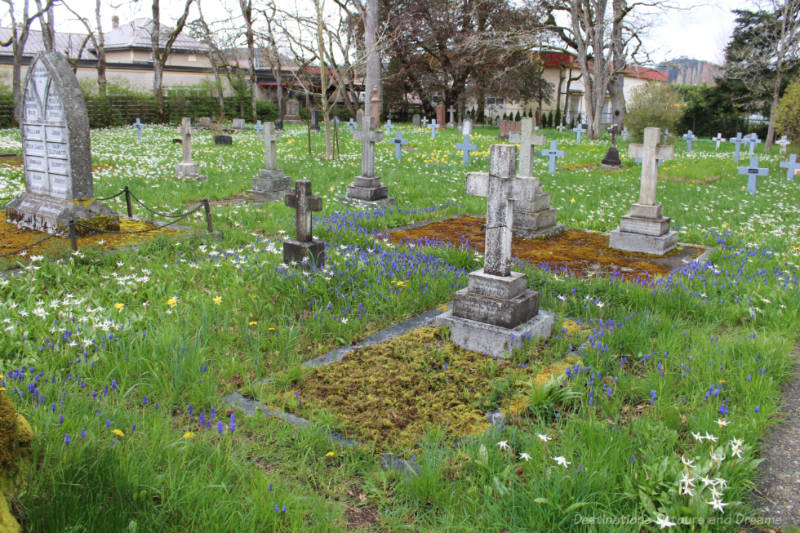
St. Mary the Virgin is the third oldest church in continuous use on Vancouver Island. Anglican religious services began in Metchosin in 1862. In 1871, John Witty donated two acres of land for the church and yard. (At the same time, he donated land for the schoolhouse which still stands in the village.) The foundation stone was laid on July 24, 1873 and the church was consecrated on October 22, 1873. Unfortunately, John Witty was not able to attend the consecration. He had died the previous day from injuries incurred in a horseshoeing accident.
In 1988, attendance numbers became too large for the small church. The St. Mary of the Incarnation church was built on land donated by a descendant of John Witty. Worship still takes place at the original church on major Christian festivals.
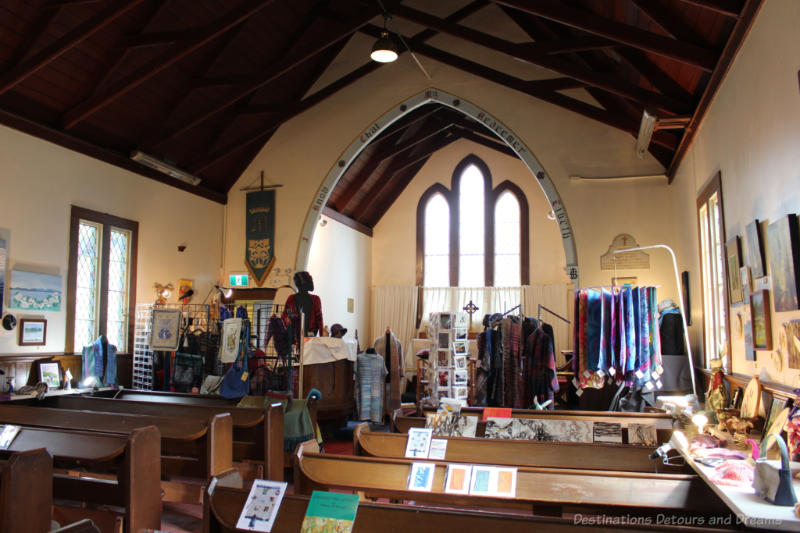
I was fortunate to be able to get inside that original church. It was hosting the annual Consider the Lilies show, a textile and art show put on Fibres & Beyond, a group of artists from Sooke and Metchosin. The artists work with surface design, fibre, fabric, and mixed media. Pieces on display included scarves, clothing, paintings, table linens, sculptures, carry bags, wall hangings, cards, and more.
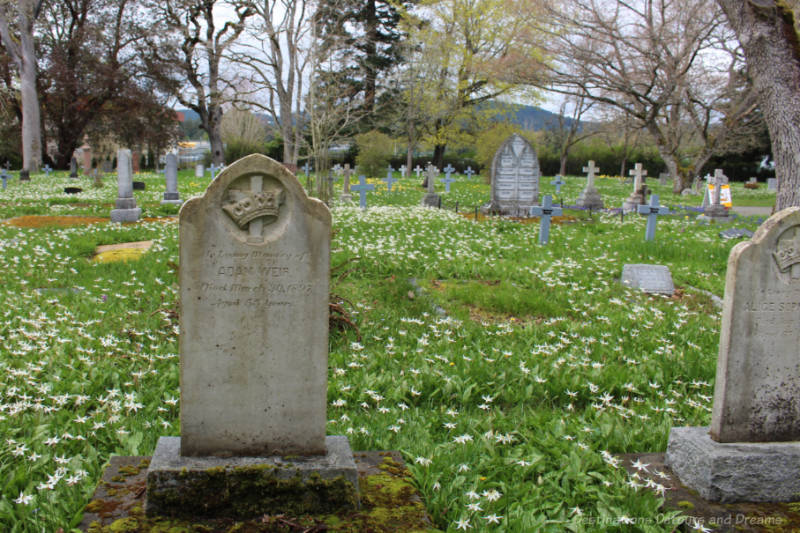
Many historical pioneer families have been buried in the cemetery. As is the World’s First Scout, as noted on a plaque on a rock in the cemetery. George Bridges Harley Guest Rodney (1891—1973) was the first youth to sign the register at the original Scout camp, held August 1–9, 1907 on Brownsea Island in England.
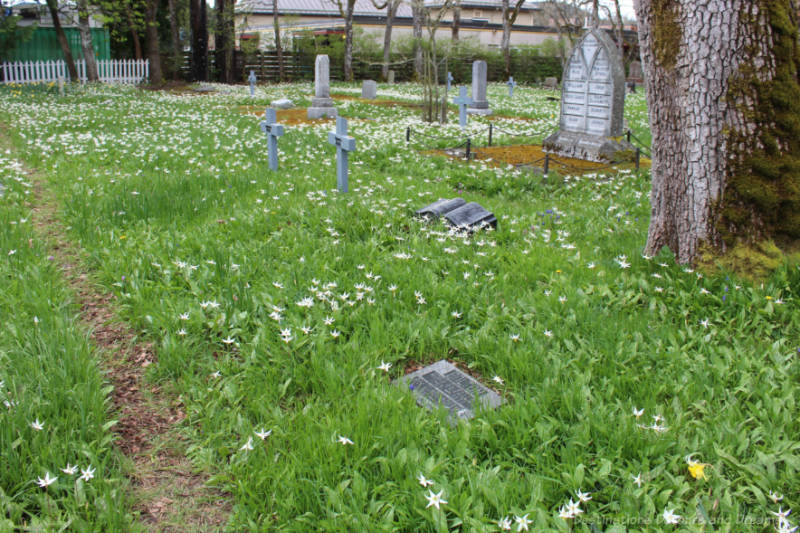
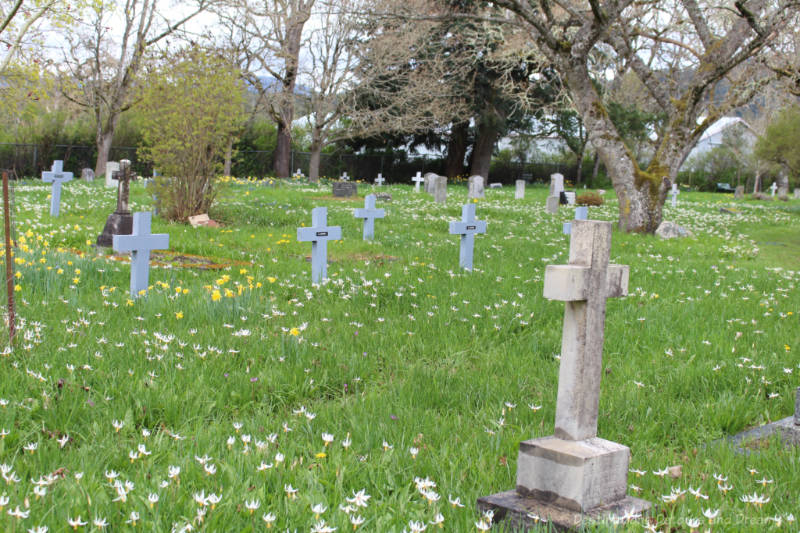
The maintenance and care of the graveyard and the heritage church is carried out by volunteers, who pay special attention to the wild flowers. Because of this attention, they bloom profusely in spring and have become a local attraction. St. Mary the Virgin Church and Cemetery are located at 4354 Metchosin Road.
Never miss a story. Sign up for Destinations Detours and Dreams free monthly e-newsletter and receive behind-the-scenes information and sneak peeks ahead.
PIN IT
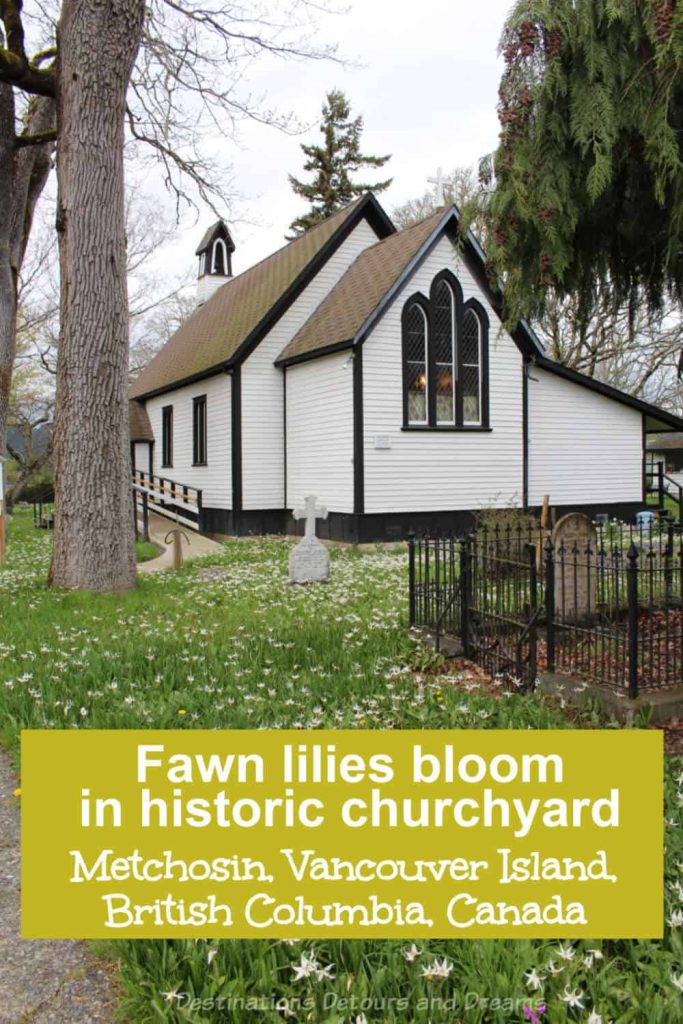

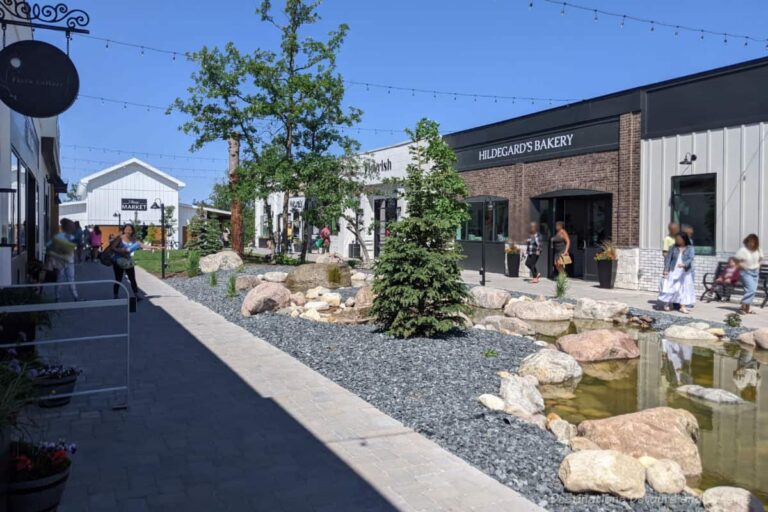
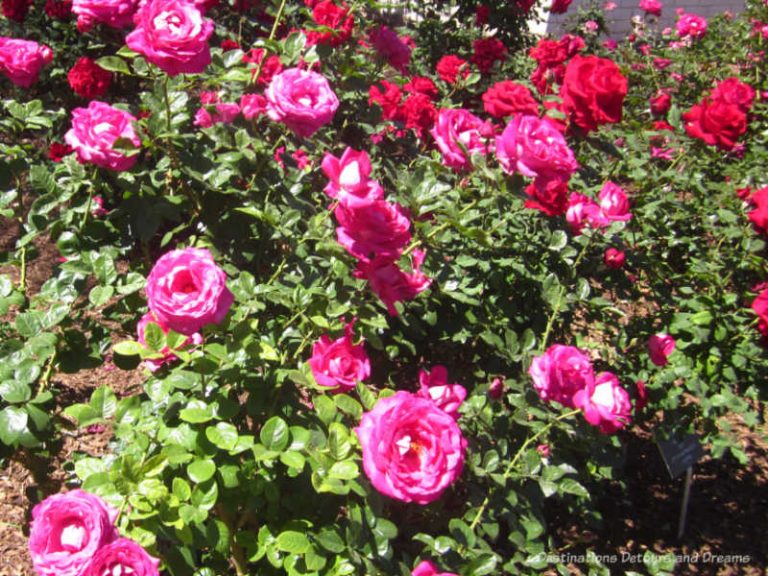
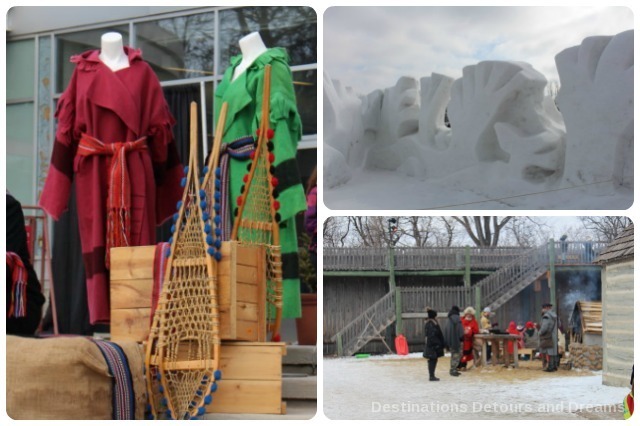

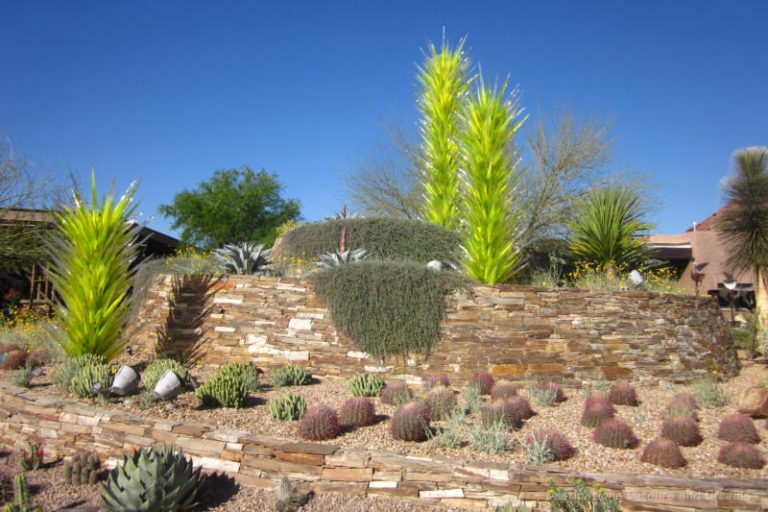
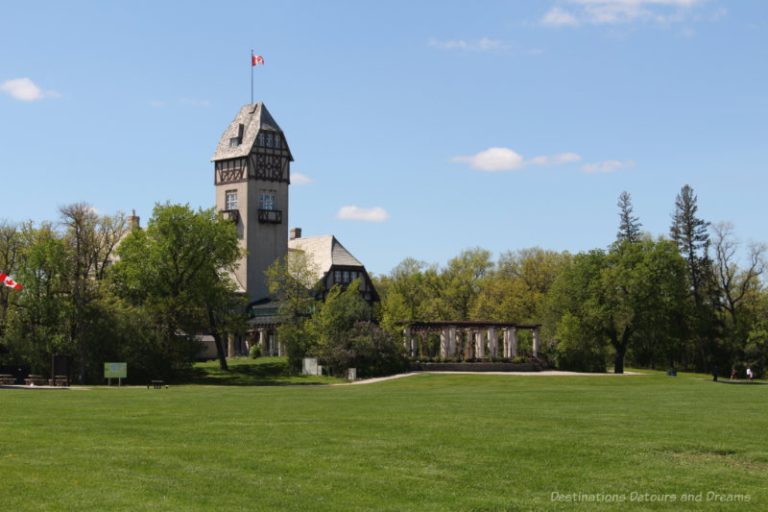
A nice vision of spring.